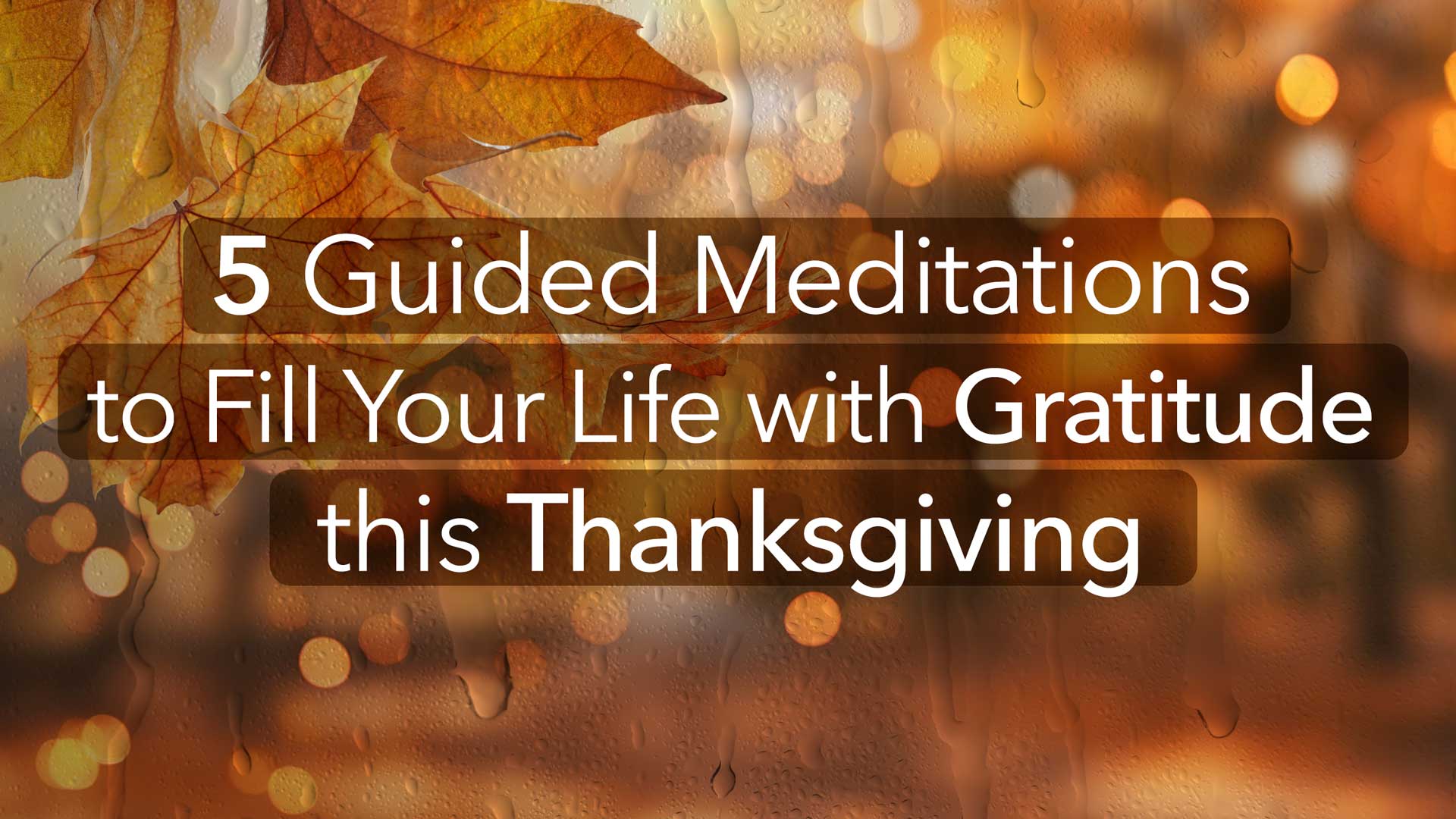With the holiday season fast approaching, the topic of gratitude is sure to come up, but for many, it sounds like an empty word related to various events they’re expected to attend. However, gratitude is anything but empty, it’s just been sort of watered down with insincerity and overuse of the word itself.
Let’s visit the term “gratitude,” cover reasons why we should be grateful, and explore ways to enhance our sense of gratitude in order to charge our mental well-being.
What is Gratitude?
We hear a lot about being thankful for what we have, especially during times when we don’t want to hear it. But what is gratitude, really?
Gratitude, by definition, is the emotion associated with appreciation and thankfulness. When a person feels positively toward something good that has happened to them or something they have obtained, it inspires a sense of warmth and a moderate boost in their sense of well-being. In short, gratitude is basically the feeling a person has when they think, “I’m so glad I have this person or thing in my life,” or “I’m happy that this thing has happened.”
So, showing gratitude for something or someone simply means giving thanks. This can be either verbally saying thank you to someone for a gift or show of support they’ve given you, or mentally thanking the Universe for the way things have worked out. Either way, giving thanks has its benefits beyond being polite.
Why Give Thanks?
As mentioned above, giving thanks is a polite way to react to receiving a gift or being supported by someone who cares about you. However, there are several additional benefits to being grateful for the positives in your life.
For one, understanding the situation you’re showing gratitude for helps you gain perspective on the way you’re moving through the world, especially during times when you’re struggling. When circumstances are especially challenging, thinking about the things that bring you joy and comfort can help empower you to persevere.
This does not at all mean that thinking about the positives in your life should induce shame for focusing on the negatives more often than not. Not at all. Part of the human experience involves experiencing a myriad of different emotions and each one is valid. When you’re sad, afraid, or angry, showing gratitude for the things you have doesn’t need to be framed as, “I shouldn’t feel bad about X because at least I have Y. So many people don’t have Y, so I’m doing better than they are.”
Instead, think of it in a more productive way. While you are absolutely within your right to feel bad about a difficult situation you’re facing, thinking about something or someone you’re happy to have can help calm the storm inside. As a thought, showing gratitude in such a way might sound something like this, “I’m feeling negatively about X, but because I have Y, I feel like I have the strength to keep smiling.”
On top of using gratitude to ease your mind during difficult points in your life, you might also find gratitude beneficial in strengthening your relationships, including your relationship with yourself.
Giving thanks tends to enhance the way we feel about others, and the way they feel about us. Showing that you appreciate someone or something increases oxytocin production, which is known as both the “bonding hormone” and the “love hormone.”
Finally, giving thanks is good for your heart, both physically and figuratively. It makes you feel good inside, but showing gratitude may also relieve stress, lower blood pressure, and potentially reduce the desire to “comfort eat” unhealthy food items.
How Does Gratitude Affect Mental Health?
Giving thanks can make you happier overall. As humans, we often feel our best when we’re also making others happy. When we express that we appreciate something that has been done for us, the other person’s reaction will usually reach us in a positive way. We appreciate the kindness, generosity, or support we’ve received, which boosts our state of mind, and to top it off, we also experience a boost knowing we’ve brightened someone’s day with a simple, “thank you.”
Studies also show that gratitude chemically affects the human brain. When we express appreciation for something or someone, our brains tend to produce more dopamine and serotonin, both of which are neurotransmitters responsible for triggering the sensations we call happiness and pleasure.
Mindfulness Practices for Gratitude
Meditation is one of the most effective ways to practice mindfulness when it comes to thinking about and expressing gratitude. There are several guided meditations available online for individuals who prefer verbal guidance when meditating. However, there are also several ways to meditate on gratitude without the help of a guide.
If you prefer to meditate on your own, or you find guided meditation tracks distracting, sitting or lying down in a quiet place, closing your eyes, and letting your mind clear itself is the best place to start. From there, list in your mind the things that you appreciate most, or if you want to focus on a specific source of gratitude, think about it throughout the session. Allow the feelings you have about this source to come to you and get familiar with the sensation of thankfulness. Let it refresh you by calming the other unpleasant thoughts that might try to seep into your mind.
If traditional meditation isn’t something you’re interested in, journaling is a type of meditation that allows you to simply write your feelings down, keep them somewhere safe, and review them again at another time.
Finally, if you’re more of an action-type meditator, you could always take part in an activity that shows your thankfulness in a physical way. For example, making something for the person you appreciate by hand while thinking about that person’s kindness towards you, is in effect, another form of meditation.
That’s part of what makes meditation so beneficial. There aren’t a lot of rules that come with it. You can meditate with nothing other than your own mind, or you can enhance your practice with incense, add aesthetic comforts to your meditation space, or use meditation-related products to drive your focus. It’s completely up to you so long as what you’re doing benefits your sense of self and well-being.



